“Oh, I got some stories, Mitch. Stop by anytime.” The first time I saw Uncle Peachy since starting this project was a gorgeous August day and a quintessential Peachy scene. We had cousins in town from Texas, so some extended family met at a park near the water to catch up and let the kids play. While the rest of us adults were around a picnic table, Uncle Peach was sitting by himself in a camping chair ten feet away in the shade of a small tree, wearing a t-shirt, shorts, and a camo baseball cap, hands folded on his stomach, cheerfully contributing to the conversation with anecdotes and jolly chuckles from a distance—classic Peachy.
That nickname could easily be used to describe his demeanor, and honestly, for most of my life, I couldn’t have told you his real name.
He’s always simply been Uncle Peachy.
Born Robert, when asked where the nickname came from, he really wasn’t sure. It’s always been there, and he assumes it was due to the light wispy hair he had in his first years of life.
Wherever it came from, it stuck in a big way. Whenever someone refers to him as “Robert” or “Bob,” it takes me a half-beat to register who they’re talking about.
At 67 years young, Uncle Peachy is my oldest uncle. Retired after a career in welding, he has more free time than the uncles who still work full-time and have a half dozen or more children in school and playing sports.
For that reason, so far, I’ve gotten much more quality time with Peachy than others.
He doesn’t have a cell phone, so every two weeks or so, I give their house phone a call and make the ten-minute drive to Laurium, Michigan. Aunt Debbie—my father’s oldest sister—and Uncle Peach have had the same house for thirty-four years on a pleasant little street lined with large maple trees that arch across the road and create a leafy tunnel in the summer.
I hadn’t visited their house in at least ten years, but it was the same as I remember, fluffy carpet, wood-paneled walls covered in pictures, trophy fish, and taxidermied deer, and furniture that I’m sure was upgraded and moved but all somehow looked the same in my eyes.
Most of my memories of there are from Thanksgiving dinners, so it was very fitting that, during my first visit, Aunt Debbie had something in the crockpot and the house smelled of slow-cooked meat. Peachy was sitting at the kitchen table, a fleece blanket rolled up and duct-taped into a support pillow tucked by his lower back—of which, multiple can be found throughout the house and his jeep—to ease the pain after two hip replacements.
The three of us sat at the kitchen table under fluorescent lights as I flipped through a box of pictures of them and their five children (Laura, Michelle, Heather, Stephanie, and Byron), and I asked occasional questions.
Uncle Peachy didn’t lie; he’s got stories.
Starting with the small circle hole in the rectangular recessed light that was above my head. A few weeks prior, a chipmunk had gotten into their ceiling and could be heard walking about. It was slow, apparently ill, and had made its way into their fluorescent light fixture.
Fearful that it would crawl into the wall and die, leaving them with the stench of death and an unwanted wall-tearing project, Peachy borrowed a pellet gun from the neighbor.
In his own kitchen, the shadowy outline of the chipmunk clearly visible overhead, Uncle Peach pressed the pellet gun to the hard plastic, aiming at the head but angling the shot so it wouldn’t hit the light bulb, and pulled the trigger.
“Was it a bloody crime scene?” I asked wincing.
“Yeah, a little pool about six inches,” added Debbie, shaking her head with an exasperated smile, reminding me of her mother, my Grandma Jannette. Peachy was unfazed and gave his classic chuckle.
A quick glance at the living room walls shows Uncle Peach is comfortable with guns. He’s by no means a trophy hunter, but he has gone every opening day for the last forty-five years with his friend Ralph Johnson, even walking out there with a cane last year as he was still feeling the effects from complications during his latest hip replacement.
But he’s quick to say it’s not all about getting a deer. It’s about being in nature because that’s where he and his father used to spend time together. “I was in the bush lots,” he said.
It’s the same reason, in the spring and fall, when the water is highest, one can find Peachy out in the forest next to one of many small rivers or creeks with a fishing pole, dropping a line in a deep pool.
For him, it’s a way of remembering and honoring his dad.
Which brings me to the ultimate Uncle Peachy story.
His father was born in 1908, and as was typical of men of that generation, he worked in the mines and didn’t show much emotion. He was already in his late forties when Peachy was born, the youngest of four, and there’s a gap between him and the others—his brother Karl (83), sister Judy (80), and brother Arnie (75) are all still with us.
Their mother tragically passed away after a long battle with cancer in 1967 when Peachy was only ten years old, and he doesn’t have too many memories of her beyond the hollyhock flowers she planted that stood six feet tall and bloomed in the summers, doctors making house calls, ambulances, and the hospital.
When asked if her passing had a noticeable impact on his dad, he said he couldn’t really say. He was young and his father wasn’t one to talk about those things anyway.
Peachy has always been a large man and was a good athlete, excelling at football and hockey, but his father never went to watch the games—not even youth sports.
He would listen on the radio to the Calumet Copper King high school games but wouldn’t go in person.
That is until the final hockey game of Peachy’s final year; his father was finally convinced to go and watch his son play.
The last home game of the season is known as “Senior Night,” and parents of the graduating players are walked with their children onto the ice for a small ceremony. So Peachy brought his father out with the other parents and said he was nervous, not so much about the game but about his father being there.
As the game started, he said it was difficult to concentrate, and he kept looking over at his dad sitting next to his brother Karl in the stands.
The first period ended, and the team went into the locker room for the intermission.
Then the Calumet High School athletic director knocked on the door.
He told Peachy his father collapsed in the stands and was on his way to the emergency room.
Rather than go out for the second period and finish his final high school hockey game, Peachy took off his equipment and was rushed to the hospital.
His father was unconscious, but when he got there and stood by his bedside, Peachy spoke to him and said he could feel his father squeeze his hand, and that, “he knew I was there.”
During the night, he passed away.
His father never went to watch a single game until the last one of his last year, had a stroke in the stands, and died—if that were written in a Hollywood script, I would roll my eyes and say it’s way too on the nose.
But there was Peachy, seventeen years old and without parents.
He went to live with his brother Karl to finish his senior year, and then to trade school, moved downstate for a welding job, came back, met the love of his life Debbie at 21, got married shortly after, and started a family of his own.
Life isn’t fair, and tragically losing both parents so young, he’d be in his right to curse the Lord or hit the bottle, but Peachy is as jolly as they come.
Because I’ve never seen him fly off the handle, I’ve reached out to my cousins to get some dirt on what grinds his gears and makes him flip out, but they haven’t gotten back to me with any specifics—maybe round two will be the “Angry Peach” post.
For me, he’s always been happy Uncle Peachy. Losing both parents before his eighteenth birthday, he seems to know what’s important in life. “You grow up fast, you gotta do a lot yourself, and you gotta search…as you’re doin’ now,” he told me from across the kitchen table.
So, with his rifle in hand, he’ll venture out into the forest with Ralph Johnson for another hunting season, just as his father would have.
And come spring, he’ll plant magnolias, cosmos, and irises, just as his mother would have. “You see them flowers around the house, Mitch? Debbie don’t do those. I do.”
Just as being in nature reminds him of his father, for Uncle Peachy, getting his hands in the dirt and planting flowers is a way of remembering and honoring his mother.
A new year, another summer on its way, and a new bloom, the cycles of Time and Nature continue their march forward.
And they will long after we’re all distant memories.
All we can do is try to be like Uncle Peachy and take the time to honor those we love and those that we’ve lost.
“Just be happy and make other people happy, Mitch. That’s all it is.”
—Uncle Peachy
If you’re enjoying 18 Uncles and want to support the project, the best way is by becoming a paid subscriber. Similarly, every like, comment, and share makes so much more of a difference than I can explain. So please, if you enjoyed reading about Uncle Peachy, share this post. Financial support can also be given directly via the Venmo and PayPal links below.
Thank you so much for reading.
One Love
—Mitch


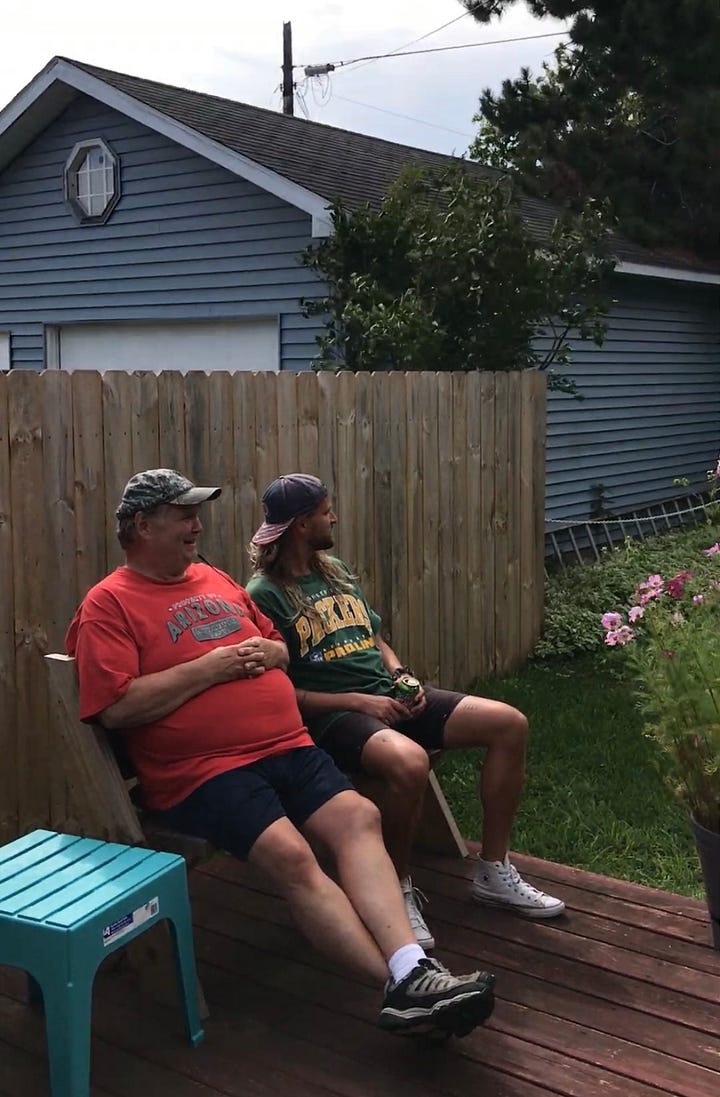







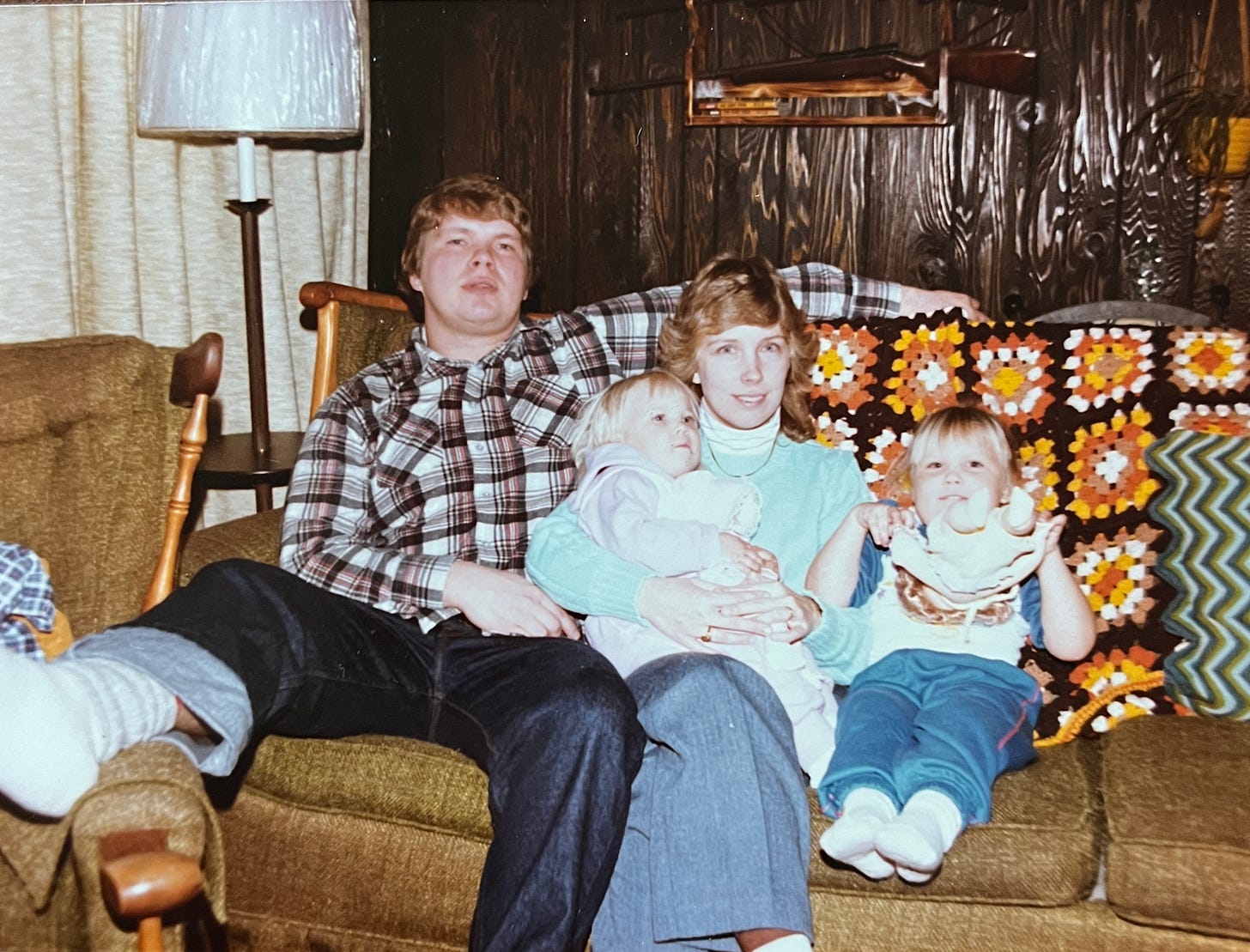
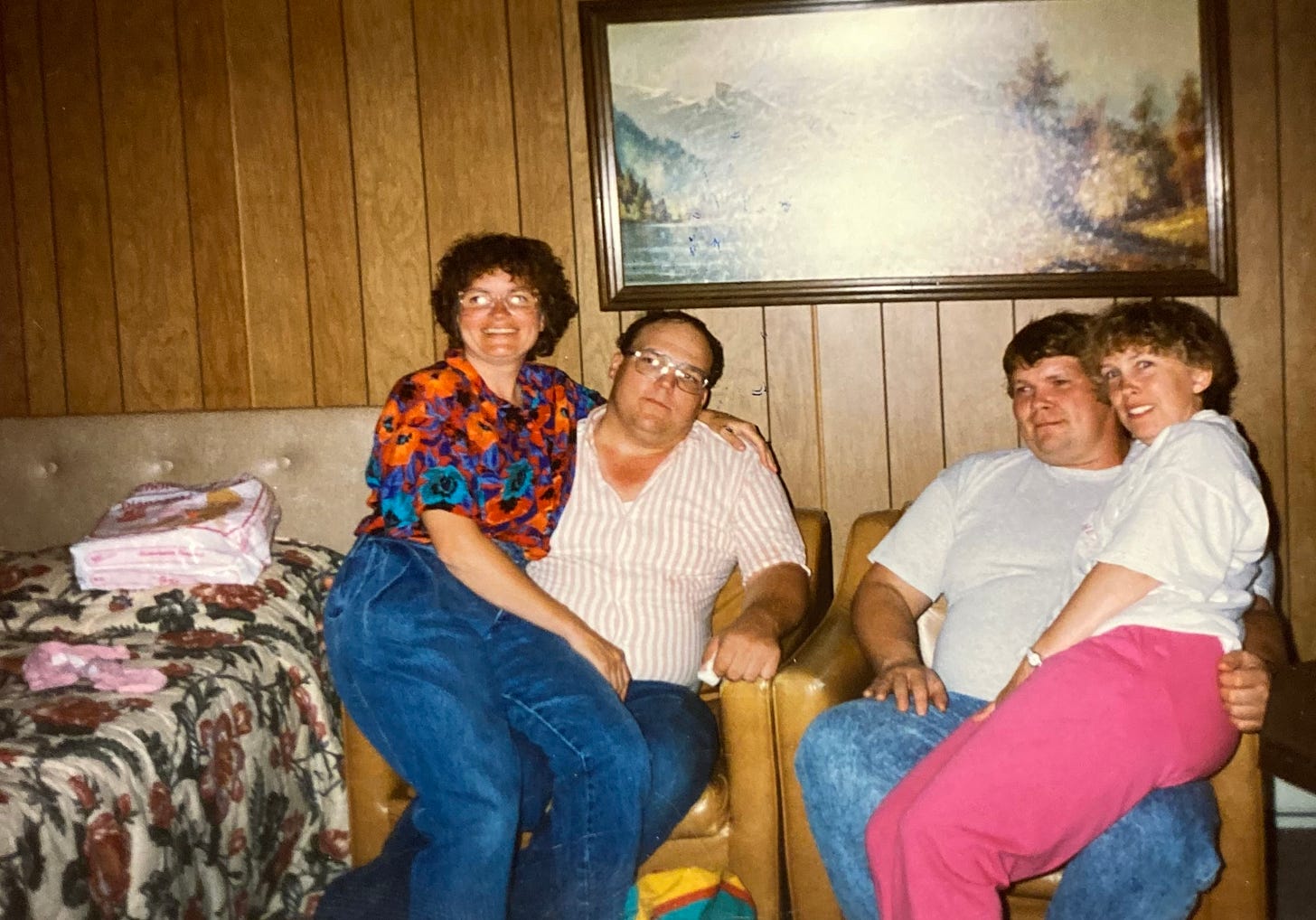

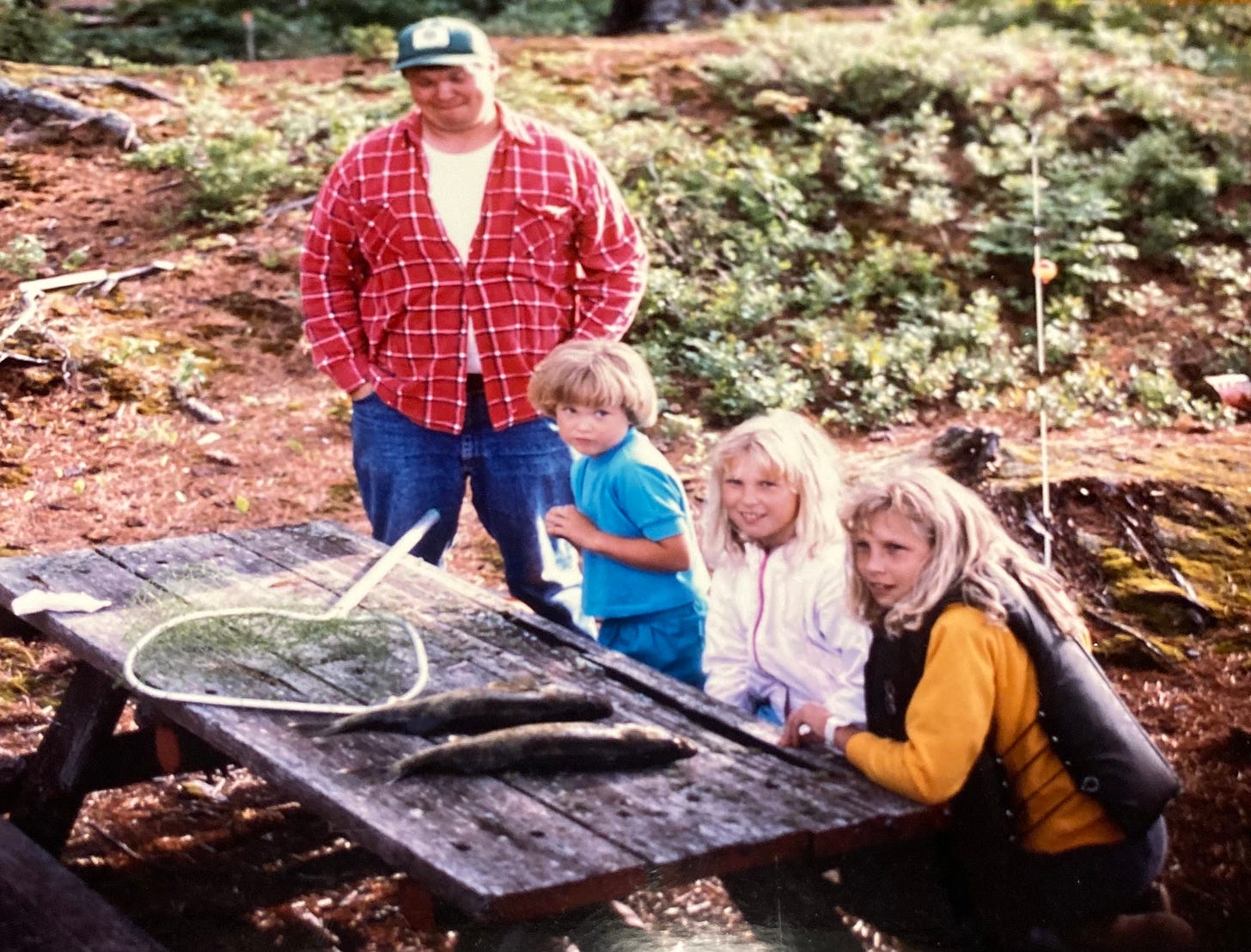

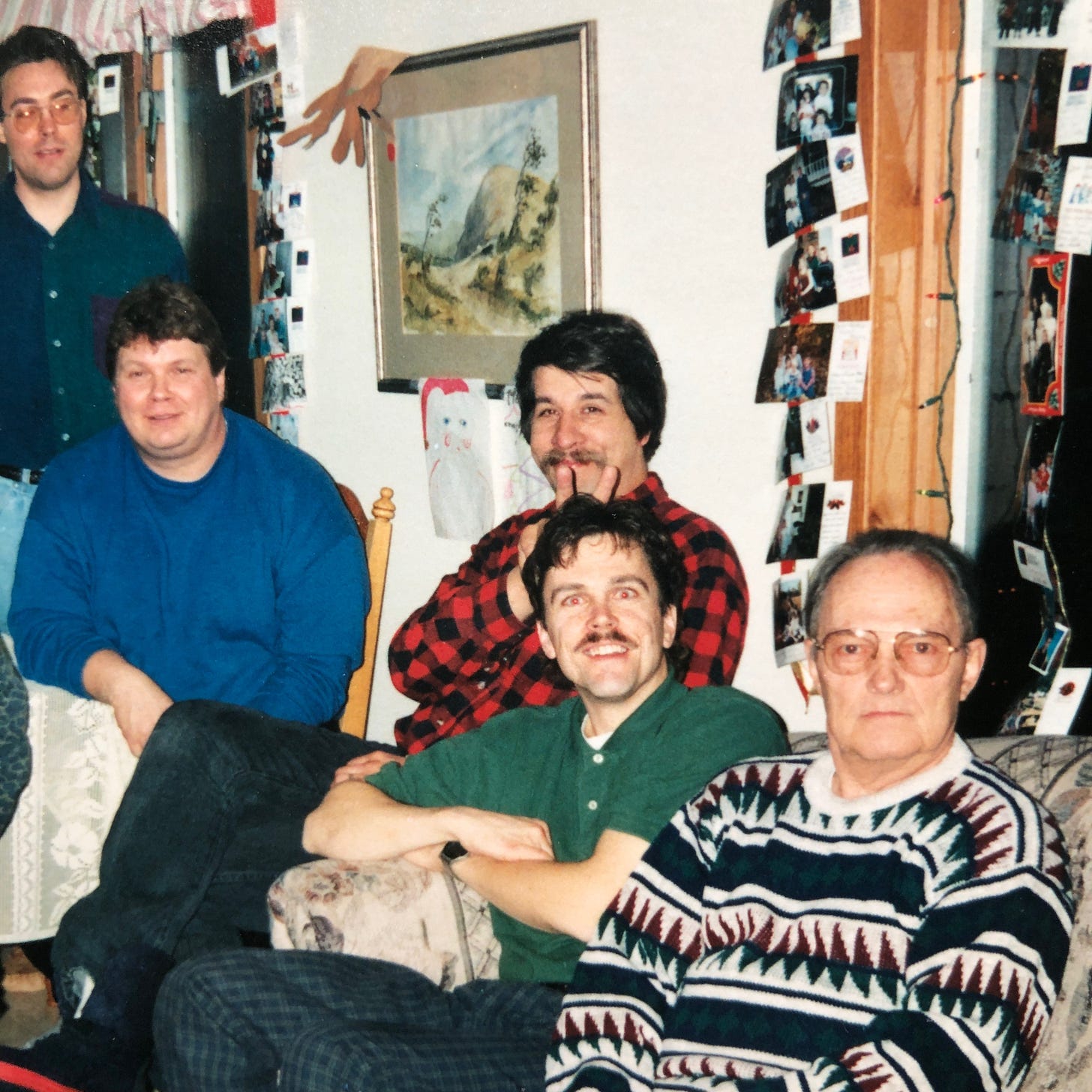
Mitch, this is a beautiful post! I can’t say I KNOW Peachy, but of course I know who he is. It sort of knocks me back a bit to hear his history. A great reminder that everyone has a story, a past. You just never know what someone has been through, until you take the time to ask, to listen. This was an enjoyable read.
Thank you Mitchell🙏